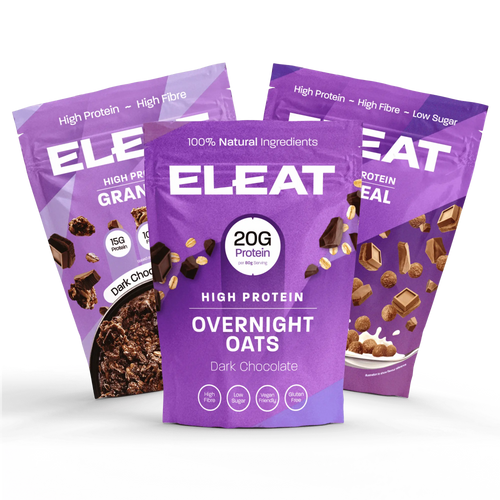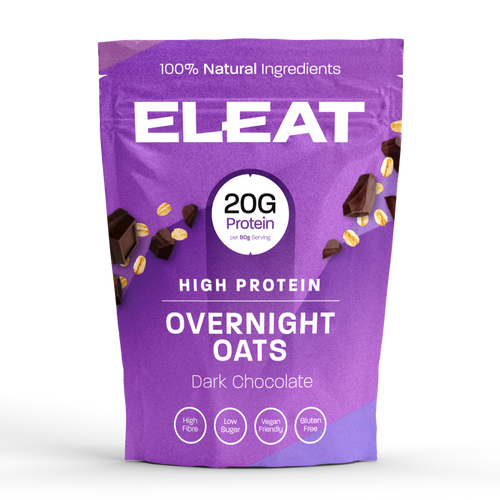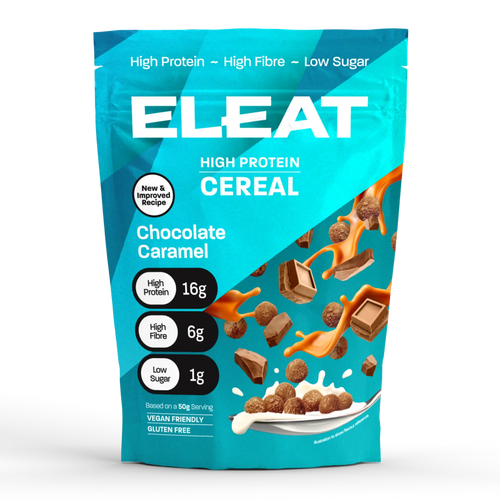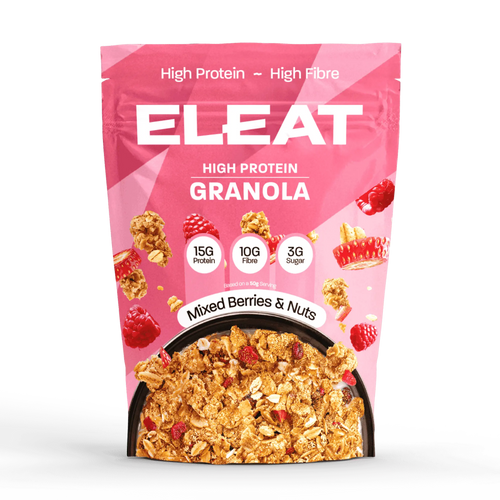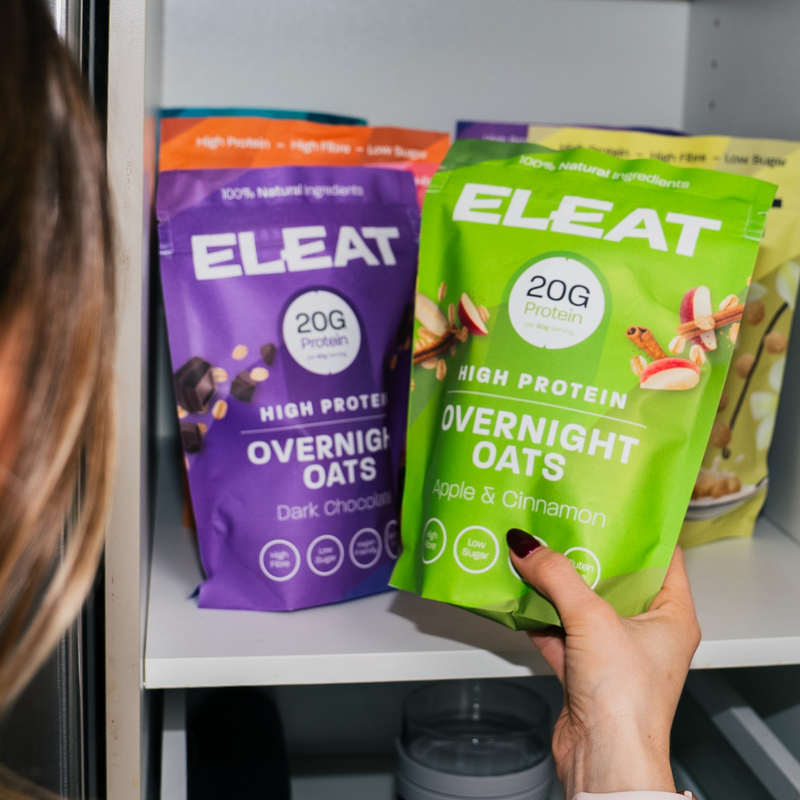In this article:
Gut health is everywhere, from Instagram ads and influencer reels to the supplement aisle at your local pharmacy. It's become one of the biggest buzzwords in wellness, with more people than ever paying attention to what’s going on in their digestive system and how to support it, but do gut health supplements work?
With this surge in interest has come an explosion of products promising better gut health. Probiotics, prebiotics, digestive enzymes, and fibre powders are no longer niche or hard to find. They’re front and centre on shelves, in daily routines, and all over social media.
Each promises big benefits: better digestion, a stronger immune system, more energy, even clearer skin and a brighter mood. But with so many options (and so much marketing), it’s natural to feel sceptical.
So here’s the big question: Do these gut health supplements actually work? Or are they just another trend dressed up in feel-good promises and pretty packaging?
In this post, we’ll take a closer look at what gut health supplements really do and help you figure out whether they’re worth the hype or just clever branding.
What Are Gut Health Supplements?
With so many products on the market, it’s easy to feel overwhelmed by the labels and lingo. So before we dive into what works and why, let’s break down the main types of gut health supplements and what they’re actually meant to do.
Probiotics: The Good Bacteria
Probiotics are live microorganisms, usually bacteria or yeasts, that are similar to the beneficial microbes found naturally in your gut. The idea behind probiotic supplements is to add more of these “good guys” to your system, helping to support a healthy microbiome, especially after illness, antibiotics, or digestive disruptions.
They're commonly used for:
- Supporting regular digestion
- Reducing bloating or discomfort
- Balancing gut flora after antibiotics
Prebiotics: Food for Your Microbes
Prebiotics are types of non-digestible fibre that feed the beneficial bacteria already living in your gut. Unlike probiotics, which try to introduce new microbes, prebiotics help nourish and strengthen the ones you already have, making them a powerful tool for long-term gut health.
Common sources include chicory root, inulin, and resistant starches. Prebiotic supplements are often used to:
- Improve gut balance and microbiome diversity
- Enhance digestion and nutrient absorption
- Support immune health and overall well-being
Postbiotics: The Byproducts of Bacteria
Postbiotics are the compounds produced when your gut bacteria break down prebiotic fibres. Think of them as the beneficial “waste” products of healthy microbial activity, things like short-chain fatty acids (e.g. butyrate) that support gut lining health, inflammation control, and immune function.
Postbiotic supplements are newer to the market but are growing in popularity due to their potential to deliver benefits without needing to take live bacteria.
Digestive Enzymes: Helping Hands for Digestion
Digestive enzyme supplements provide the tools your body needs to break down food more effectively. They can help your body process proteins, fats, and carbohydrates, which is especially helpful for people with digestive conditions or food intolerances.
They’re commonly used to:
- Ease bloating and discomfort after meals
- Help with lactose or gluten digestion
- Support nutrient absorption
Fibre Supplements: Filling the Gaps
Fibre is a foundational part of gut health, but most of us don’t get enough from diet alone. Fibre supplements can help close that gap, supporting digestion and feeding beneficial bacteria at the same time.
Types include:
- Soluble fibre (slows digestion, stabilises blood sugar)
- Insoluble fibre (adds bulk and keeps things moving)
- Resistant starch/prebiotic fibre (feeds your gut microbes)
Whether it’s a scoop of powder in your smoothie or a daily capsule, fibre supplements are often the simplest place to start when looking to support gut health.
Why Gut Health Matters?
The gut is often overlooked, but it’s quietly one of the most powerful systems in the body. Inside your digestive tract lives a vast community of microbes, bacteria, viruses, and fungi, all working together in what’s known as the gut microbiome. While that might sound like something out of a science fiction novel, this tiny ecosystem has a huge impact on your overall health.
When your gut is in balance, it does more than just digest your lunch. It helps absorb nutrients, supports your immune system, manages inflammation, and even talks to your brain. Ever felt “butterflies” in your stomach before a big moment? That’s the gut-brain connection in action. Research now shows that the state of your gut can influence everything from your mood and energy levels to your skin and sleep quality.
But when things go off track, when the balance of good and bad bacteria shifts, you might start noticing signs that something’s not quite right. Bloating, fatigue, skin breakouts, and brain fog are just a few of the ways an unhappy gut can make itself known. Even anxiety and low mood can be linked to what's happening in your digestive tract.
So, while it might seem like a niche wellness trend, gut health actually touches nearly every part of your well-being. And that’s why supplements aimed at improving gut health have become so popular - but do they actually work?
The Science Behind Gut Health
Gut health supplements come in many forms, but the big three are probiotics, prebiotics, and digestive enzymes. Each works a bit differently, and not all of them have the same level of scientific support.
Probiotics: Helpful, But Highly Strain-Specific
Probiotics are live microorganisms, usually bacteria, that are meant to add to the population of good microbes in your gut. Some studies support their use for things like antibiotic-related diarrhoea, certain types of IBS, and even mild immune support. But here’s the catch: not all probiotics are created equal.
Different strains do different things, and what works for one person may do nothing for another. For example, Lactobacillus rhamnosus may help with diarrhoea, while Bifidobacterium infantis might help with bloating or constipation. Effectiveness depends heavily on the strain, the dose, and the specific health issue.
So yes, probiotics can help, but only if you're taking the right one for the right reason.
Prebiotics: Feeding the Good Bacteria
While probiotics add bacteria, prebiotics feed the good bacteria that are already in your gut. These are typically fibres and plant compounds your body doesn’t digest, but your microbes love.
Research shows more consistent benefits with prebiotics than with probiotics. They help maintain a balanced gut microbiome and can support digestion, reduce inflammation, and possibly even improve mineral absorption. You’ll find natural prebiotics in foods like onions, garlic, bananas, and oats, but supplement forms can also be effective.
Think of prebiotics as fertiliser for your gut garden. They don’t plant anything new, but they help what’s already there grow strong.
Digestive Enzymes: Targeted Help for Specific Conditions
Unlike probiotics and prebiotics, digestive enzymes aren’t about your microbiome, they’re about breaking down food. Your body produces enzymes to help digest carbs, proteins, and fats. But if you have a condition like lactose intolerance or pancreatic insufficiency, you might not make enough on your own.
In those cases, enzyme supplements can help reduce symptoms like bloating, cramping, and gas. For example, lactase breaks down lactose in dairy, and lipase helps digest fats. But for generally healthy people, extra enzymes may not make a noticeable difference.
What’s Not Proven
Despite flashy marketing, gut health supplements aren't cure-alls. Many products make vague or exaggerated claims, like promoting weight loss, detoxifying the body, or eliminating fatigue, that simply aren’t backed by solid science. The gut is important, but it’s not a magical fix for every health issue.
In short, the effectiveness of these supplements depends on what you take, why you’re taking it, and what your body actually needs. They can be helpful tools - but they’re not a substitute for a healthy diet, good sleep, and lifestyle habits that support your gut naturally.
Are They Worth It?
Gut health supplements might seem like a quick fix, but their effectiveness depends on a mix of factors, some of which are easy to overlook. Let’s break down what really determines whether they’re worth your time and money.
Strains and Dosages Matter
Not all probiotics are created equal. The benefits of a supplement depend heavily on the specific strains it contains. Some strains have been studied for supporting digestion or easing IBS symptoms, while others have little to no clinical backing. Even the most well-researched strains won’t help if the dose is too low to make an impact.
Surviving the Journey
One major hurdle for probiotics is the stomach itself. The acidic environment can kill off bacteria before they ever reach your intestines, where they’re actually needed. Some supplements use special coatings or delayed-release capsules to improve survivability, but many don’t. Without protection, a lot of those "billions of CFUS" (colony-forming units) might not survive the trip.
Everyone’s Microbiome is Unique
Your gut microbiome is like a fingerprint, completely unique to you. What works for someone else might not work for you at all. Factors like your diet, genetics, past medications (especially antibiotics), and even your environment all shape how your body responds to gut health supplements.
Timing and Consistency Count
Taking a probiotic once and expecting results is like hitting the gym once and expecting a six-pack. Gut health changes gradually. Most studies show that consistent, daily use over several weeks is needed to see benefits, and even then, the changes can be subtle. If you're inconsistent or stop too early, you might not see much of a difference.
Lifestyle Still Comes First
Supplements can support a healthy gut, but they can’t fix an unhealthy lifestyle. A diet high in processed foods, low in fibre, chronic stress, poor sleep, and lack of physical activity can all throw your gut off balance, no matter how many capsules you take. The best results usually come when supplements are used in combination with broader lifestyle improvements.
The Bottom Line
Gut health supplements can be worth it, but only when chosen carefully, taken consistently, and paired with healthy habits. For some, they can be a useful tool. For others, they’re just expensive shelf decorations.
So, Do Gut Health Supplements Work?
Gut health supplements, like probiotics, prebiotics, digestive enzymes, and fibre powders, aren’t just wellness trends; they’re tools. But like any tool, their effectiveness depends on how (and why) you use them.
The truth is, some gut health supplements do work, especially for people with specific issues like IBS, food intolerances, or microbiome imbalances. Science supports their potential, particularly when the right strains or enzymes are used in the right context. But they’re not one-size-fits-all, and they certainly aren’t magic pills.
If you’re looking for a quick fix, a supplement alone probably won’t cut it. Gut health is deeply tied to diet, stress, sleep, and lifestyle, things no capsule can fully replace. However, when combined with smart habits, the right supplements can offer real support for your digestion, immunity, and overall well-being.
In short: they’re not hype - but they’re not a miracle either. Be informed, be consistent, and always listen to your body. That’s the real secret to better gut health.
